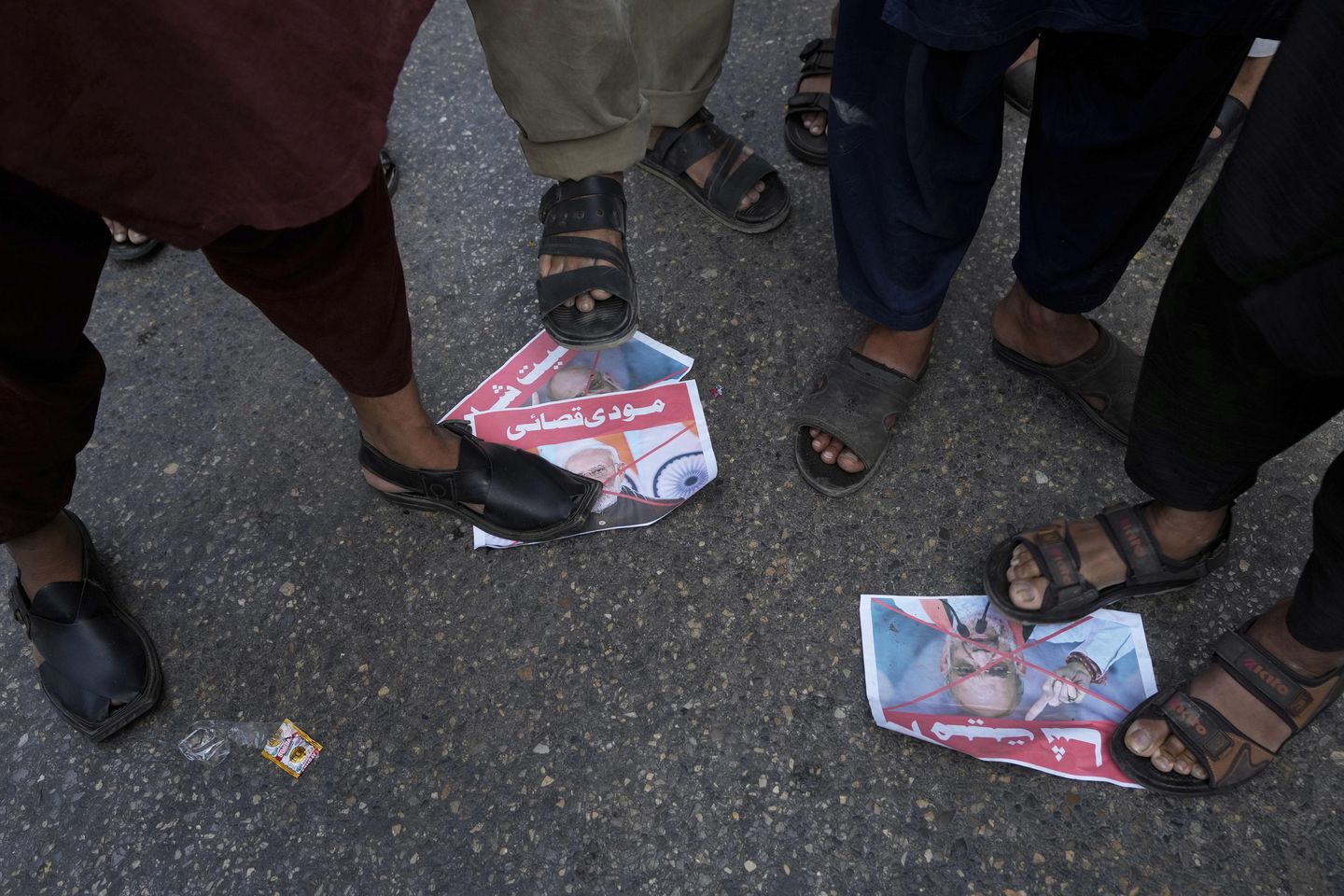
SEOUL, South Korea — India accused two Pakistanis on Thursday of being involved in a murderous terrorist attack, escalating already sky-high tensions along one of the world’s most heavily militarized borders.
So far, retaliation has been restricted to the economic, diplomatic and geographic-agricultural spheres. But there are fears that the subcontinent’s two nuclear powers are on the brink of a new conflict over Kashmir — a powder-keg province for which the two countries have already fought three wars — as both sides escalate responses following a terrorist attack on Tuesday.
“Terrorists have dared to attack the soul of India,” Indian Prime Minister Narendra Modi wrote on X on Thursday. “I want to say in very clear words that those who conspired for this attack will get a punishment bigger than they could have imagined.”
Though Mr. Modi did not mention Pakistan, Indian police said Thursday that two suspects were Pakistani citizens, without offering details.
India has been ratcheting up sanctions against Pakistan since Tuesday when gunmen opened fire in Pahalgam, a town in the Muslim-majority Indian territory of Kashmir, killing 26 tourists and wounding many more.
A barely-known militant group, The Resistance Front, or RTF, claimed responsibility, citing migration of nonresidents into the area.
In the attack, militants emerged from a forest and gunned down Indian men in a meadow outside the town. Women at the scene were spared.
On Wednesday, India closed its key border crossing with Pakistan, a move that will inevitably hit trade. It also suspended the 1960s’ “Indus Water Treaty” — a reaction that, due to India’s upstream position, will impact Pakistan’s agricultural and hydropower sectors.
Diplomatically, India has expelled several Pakistani diplomats and recalled some of its own from Islamabad, while revoking Pakistani visas.
Responses were not long in coming.
On Thursday, Pakistan closed its airspace to Indian aircraft, halted visa issuances to Indians and suspended the 1972 Simla Agreement, which ended hostilities in the 1971 Indo-Pakistan War.
Among the agreement’s provisions was a clause that neither side would violate the “line of control” established between Pakistan, on the one side, and India-held Kashmir and the adjacent Indian province of Jammu, on the other.
“The suspension of the Simla Agreement may not have immediate consequences but could open the door to greater diplomatic and military brinksmanship,” The Times of India wrote in an analysis.
Noting that India has not yet responded to Pakistan’s move, the newspaper added, “It could lead to increased hostilities.”
Prior to New Delhi’s Thursday naming of suspects, Indian Foreign Secretary Vikram Misr had alleged “cross border linkages.”
In Muslim-majority Kashmir, some 1,500 persons were rounded up and detained by Indian security forces on suspicion of terrorist affiliations and were being questioned as the search for the attackers and a clear identification of their network, and its backers, expanded.
U.S. Vice President J.D. Vance, who has been visiting India with his wife and children, and who met Mr. Modi on the day of the attack, stuck to the sidelines.
“I extend our condolences to the victims of the devastating terrorist attack in Pahalgam, India. Over the past few days, we have been overcome with the beauty of this country and its people. Our thoughts and prayers are with them as they mourn this horrific attack,” he wrote on X.
Control of Kashmir is split between India, which controls about two-thirds of the province’s territory, and Pakistan. The area is noted for its scenic beauty, vibrant culture and fine cuisine, but also for its bubbling tensions.
New Delhi and Islamabad have fought three wars over Kashmir in the decades since the two states – Hindu-dominated India, and Islamic Pakistan – were founded, following independence from the U.K. in 1947.
Muslim-majority Kashmir has also been the scene of terrorist violence, which New Delhi often accuses Islamabad of sponsoring. Dozens of Indian troops were killed in a suicide bomb attack in the territory in 2019.
Tensions have been heightened in recent years, some say in response to the Hindu nationalism Mr. Modi has promoted.
While both nations’ responses so far have been sub-kinetic, open-source intelligence groups are raising concerns.
Various OSINT groups on X have reposted an image from the Indian Navy’s Instagram account of New Delhi’s “Vikrant” aircraft carrier strike group allegedly heading toward Pakistani waters.
However, the Vikrant’s own X account is silent on any such deployment, and the only related image on the Indian Navy’s Instagram account does not mention the direction of the Vikrant CSG’s travel, stating only “Fleet in formation – force in action.”












